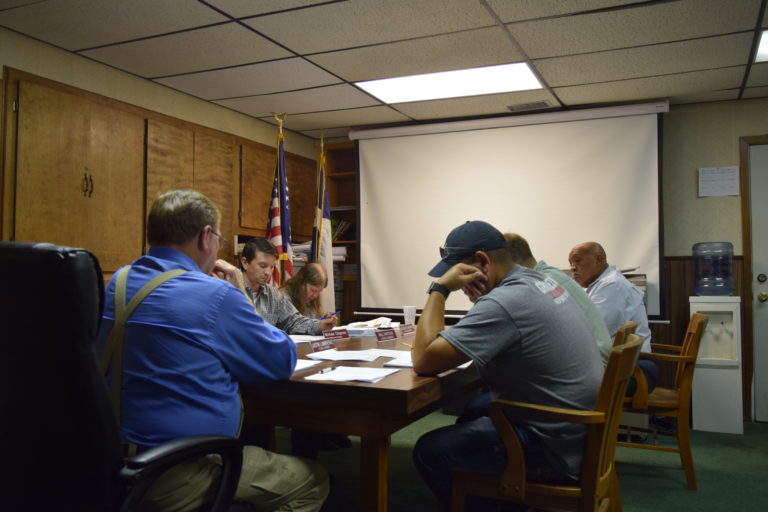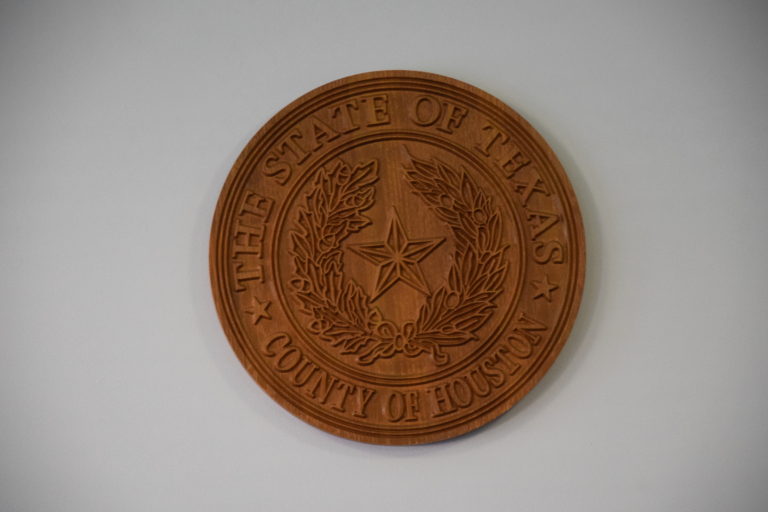DETCOG Presentation Given to Grapeland Lions

By Will Johnson
Messenger Reporter
GRAPELAND – If you have ever attended a commissioners court, city council or school board meeting in East Texas, you have probably heard someone mention DETCOG. DETCOG stands for the Deep East Texas Council of Governments and encompasses 12 counties.
According to the organization’s website, “The Deep East Texas Council of Governments (DETCOG) is a voluntary association of Counties, cities, independent school districts, river authorities, soil and water conservation districts, hospital districts and sustaining private industry members in a 12 county region of deep east Texas. The region covers an area of 9,790 square miles.”
The counties included in the DETCOG area are: Angelina; Houston; Jasper; Nacogdoches; Newton; Polk; Sabine; San Augustine; San Jacinto; Shelby; Trinity; and Tyler.
The question for many, however, remains what does DETCOG do?
DETCOG Executive Director (and former Houston County judge) Lonnie Hunt was the guest speaker at the Grapeland Noon Lions Club meeting held at the Grapeland Café on Thursday, June 1.
“When I became county judge, I had heard of it but I didn’t really know what DETCOG was or what it did. That may be the case for folks in our region,” Hunt said.
“A lot of folks who are involved in cities or counties or the local governments they represent don’t really have a good understanding of what goes on at DETCOG, what we do, how we do it and why,” he said.
Hunt said the organization was celebrating its 50th anniversary this year and related a brief history of DETCOG.
“DETCOG is a political subdivision of the state of Texas. We are a voluntary association and the members chose to be members,” Hunt explained as he continued. “All 12 of our counties are members, we have 40 city members, with 46 cities in the region. We have 40 school district members and there are, I believe, 55 school districts in the region. We also have about 20 special district members. These are river authorities, hospital districts, water districts, etc. There are also some sustaining members that just support us.”
When the laws were passed establishing the various COGS (council of government), Hunt said the underlying reason was to prevent duplication and create a more efficient way to accomplish tasks that were not feasible for an individual entity to try and accomplish.
“What we’re not,” Hunt stressed, “is a taxing authority. We’re not another level of government. We have no ability to pass ordinances and we can’t enforce anything.”
He said DETCOG is an association at the regional level which brings the various governmental bodies together so they may work together in a cooperative fashion and to access programs in Austin and Washington which would be difficult for the smaller entities to access on their own.
Funding for DETCOG comes almost exclusively from grants and contracts with the state and federal governments.
“More of it (funding) comes from the federal government than through the state. A lot of it comes through the state agencies who take the monies from the federal government and then passes it out to the local communities. While we may be dealing with the Texas Health and Human Services Commission, a good bit of the funding they provide comes from the budget set forth in Washington, D.C.,” Hunt said.
The 2016 DETCOG budget was approximately $27 million with less than $60,000 coming from local revenue, mainly in the form of membership dues.
“If any of you have been involved with city, county or school district boards, you know that you need to have money in reserve to float these grant programs. Some of our grant programs provide the money up front, but a lot of the grant programs require us to spend the money and then submit the documentation for reimbursement,” Hunt said.
The programs DETCOG is involved with generally fall into one of two categories, the former county judge indicated. The first category involves assisting the various entities while the second category deals directly with the residents of the 12 county region.
Hunt said one of the areas DETCOG assists the counties with is in law enforcement with tools such as the 911 network. Another area of public safety DETCOG helps to assist with is in emergency management and homeland security matters.
At the individual level, Hunt said DETCOG helps provide services and funding “… to enable older citizens to live dignified, independent and productive lives.”
The organization also assists those on the other end of the age spectrum, Hunt said. The STAR (Services to at Risk youth)program “… provides counseling, crisis intervention, parent education and many other services designed to keep youth from running away from home, being truant from school or exhibiting other delinquent behavior.”
Hunt said these were only a few of the programs DETCOG assists with. If a person wanted a complete list of the services and assistance available throughout the Deep East Texas region, the information was as close as your phone through the 2-1-1 Texas program. The service is available 24 hours a day and provided a list of services available in a person’s community.
Will Johnson may be contacted via e-mail at [email protected].






5